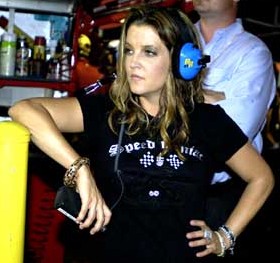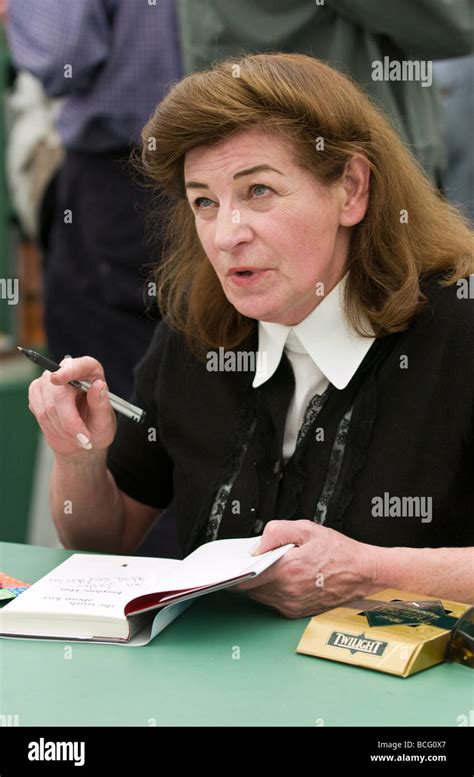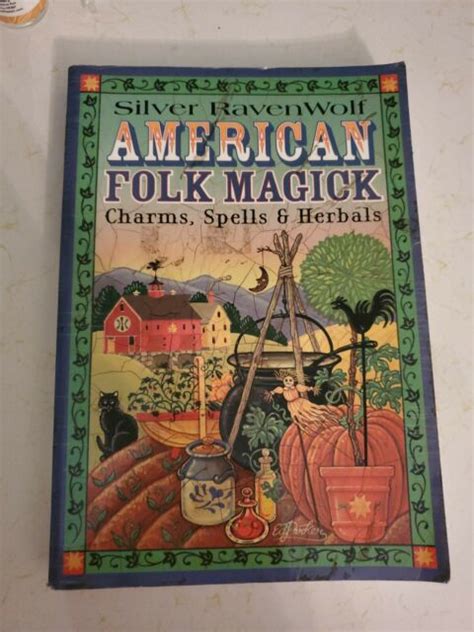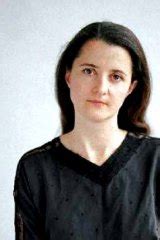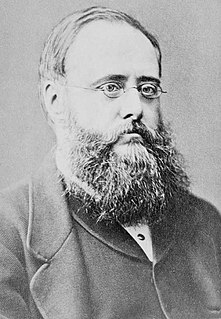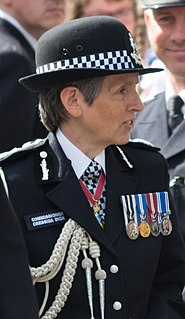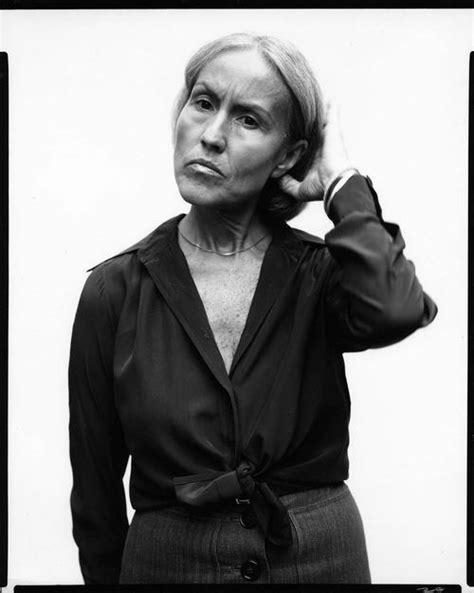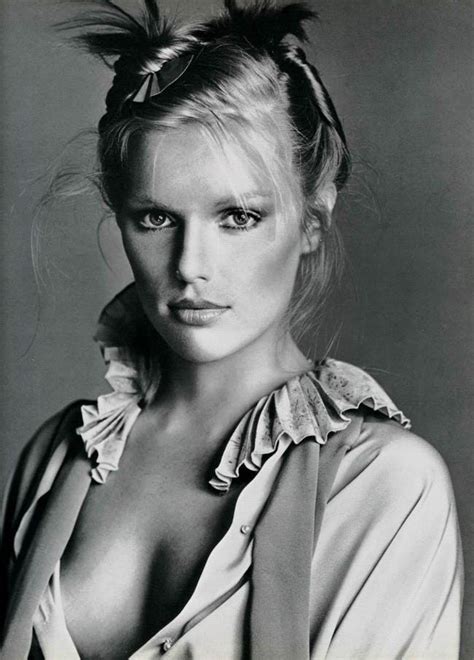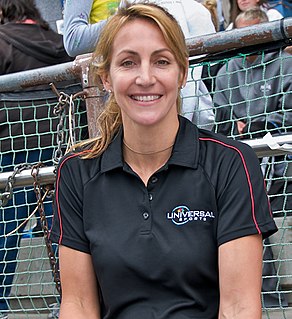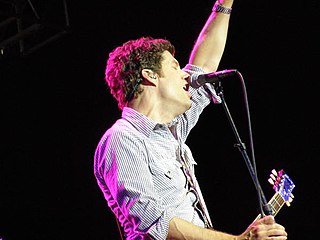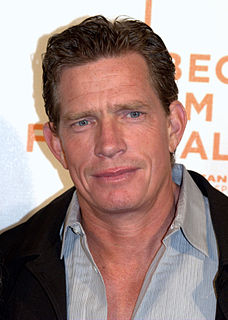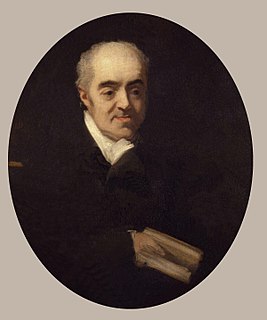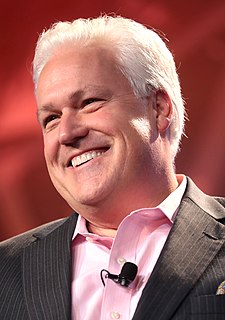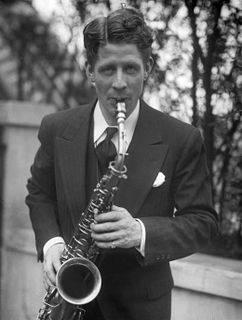Top 1200 Early Life Quotes & Sayings - Page 20
Explore popular Early Life quotes.
Last updated on November 16, 2024.
They say that childhood forms us, that those early influences are the key to everything. Is the peace of the soul so easily won? Simply the inevitable result of a happy childhood. What makes childhood happy? Parental harmony? Good health? Security? Might not a happy childhood be the worst possible preparation for life? Like leading a lamb to the slaughter.
Sometimes I train in the middle of the night, all on my own. Can't sleep, don't want to sleep, get up, go to the gym, work. This is early for me, being here at half ten in the morning, this is really early, and I'm only here because I screwed up yesterday and kept you hanging around. Other times I'll call up my wrestling coach, or my jiu jitsu coach, or my deep-tissue guy, and want to really focus on one part of what I do. I train in all these different disciplines.
To me, the Craft is what Christianity was 2,000 years ago. It was a religion that was not corrupted. I personally think Jesus was a Crafter. We believe in all the things that he spoke of. The early Christians believed in reincarnation, and that was later removed from the belief system. Early Christians had a female Divinity, and that was taken out of their belief system, or as with Catholicism, replaced with Mary. Look at how incredible the growth in devotion of Mary is. It's amazing. The desire for a female Divinity is not just Wiccan. It speaks of a global need.
If a child plays sport early in childhood, and doesn't give it up, he will play sport for the rest of his life. And if children have a connection with, and are involved in the preparation of, the food they eat, then it will be normal for them to cook these kind of meals, and they will go on cooking them for the rest of their lives.
I've never forgotten what it's like to be in your early twenties, which is not a particularly easy time. You've left your family, you've left the strictures of high school, and you're trying to break free and form yourself but you have to support yourself as well. We don't really give enough credence to that time of life and to its troubles.
A lot of people say I've missed out on a lot because I started acting at such a young age. What's so obvious to me is that I actually was really lucky. I gained a lot and I got a head start in what I wanted to do in life. A lot of people in their late 20s, early 30s are just beginning to figure out where they want to go.
Yes! the books - the generous friends who met me without suspicion - the merciful masters who never used me ill! The only years of my life that I can look back on with something like pride... Early and late, through the long winter nights and the quiet summer days, I drank at the fountain of knowledge, and never wearied of the draught.
The man who succeeds above his fellows is the one who early in life, clearly discerns his object, and towards that object habitually directs his powers. Even genius itself is but fine observation strengthened by fixity of purpose. Every man who observes vigilantly and resolves steadfastly grows unconsciously into genius.
Sometimes I think my whole professional life has been based on this hunch I had, early on, that many people feel just as muddled as I do, and might be happy to tag along with me on this search for clarity, for precision. I love that aspect of writing. Nothing makes me happier than to hear a reader say: that’s just what I’ve always felt, but you said it clearly.
That is the great thing about policing, you do have a lot of responsibility very early and you have got to make decisions, sometimes life and death decisions, very quickly and there is something about putting a uniform on and thinking 'people are looking to me to make decisions and to look after them' that makes you feel capable.
I address these hopes to all young players. It seems to me that they often begin too early the strict life of a professional, without first completing their chess studies. Deficiencies in education and a lack of certain basic knowledge will tell sooner or later; they will bump their head on the ceiling and will no longer be able to climb up to the stars.
From as early as I can remember, I wanted to have something to do with the acting business. I was a TV junkie as a kid and I think, because I grew up in a small town where I couldn't imagine myself staying there and couldn't see myself being any of the people that I was surrounded by in this town, I just knew that I wanted a different kind of a life, but I didn't know what that meant and I didn't know how.
This was early '90s and in New York hip-hop was coming on really strong; that was the sort of urban folk music that was almost threatening to eclipse rock music and indie rock music in terms of popularity, which it has certainly gone on to do. But you know, this is the end of the 1980s, beginning of the '90s. The whole independent label thing has really evolved to this incredible point from the early '80s when we started, and there wasn't one record label at all, until a couple people started forming these small labels.
There are lots of people who believe there may be at least some genetic component to procrastination, and even if there isn't, it seems to be the case that procrastination habits are often set relatively early in life (that's certainly the case with me). But I also think that there's lots of evidence that external tools can help quite a bit in getting people to stop procrastinating.
It is very seldom that any one is in prison for an ordinary crime unless early in life he entered a path that almost invariably led to the prison gate. Most of the inmates are the children of the poor. In many instances they are either orphans or half-orphans; their homes were the streets and byways of big cities, and their paths naturally and inevitably took them to their final fate.
The whole life-effort of man is to get his life into direct contact with the elemental life of the cosmos, mountain life, cloud life, thunder life, air life, earth life, sun life. To come into immediate felt contact, and so derive energy, power and a dark sort of joy. This effort into sheer naked contact, without an intermediary or mediator is the root meaning of religion.
Our understanding of early Christian beginnings is usually monolithic. It is much determined by the Acts of the Apostles, which pictures a straightforward development from the primitive community in Jerusalem founded on Pentecost to the world-wide mission of Paul climaxing with his arrival in Rome, the political centre of the Greco-Roman world. The Pauline epistles are understood not so much as historical sources reflecting a much more multifaceted early Christian situation fraught with tensions but as theological treatises expounding and defending the doctrine of justification by faith.
My dad spent most of the '50s and early '60s actually acting as sort of an advance man for the Justice Department, as a civil rights lawyer. So it was actually reading his papers after he passed away a few years ago that first started me thinking about this... What fraction of your life do you spend in service to your fellow man?
My priorities have always been God first, family second, career third. I have found that when I put my life in this order, everything seems to work out. God was my first priority early in my career when I was struggling to make ends meet. Through the failures and success I have experienced since then, my faith has remained unchecked.
If the goal is to dramatically improve college completion rates, not college-going rates by itself but college completion, it's not just a college problem. We need a big focus on early childhood education. Our early childhood education system is pretty good in this country. Not enough students have opportunity. And, very discouragingly, they lose their advantage because they go to poor schools after that. So, let's focus on our babies.
I moved to Chicago in the early 1990s and I studied improvisation there. I learned some rules that I try to apply still today: Listen. Say yes. Live in the moment. Make sure you play with people who have your back. Make big choices early and often. Don't start a scene where two people are talking about jumping out of a plane. Start the scene having already jumped. If you're scared, look into your partner's eyes — you will feel better.
We must make automatic and habitual, as early as possible, as many useful actions as we can...in the acquisition of a new habit, we must take car to launch ourselves with as strong and decided initiative as possible. Never suffer an exception to occur till the new habit is securely rooted in your life.
But maybe the Charm Bracelets understood more about life than I did. From an early age they knew what little value the world placed in books, and so didn't waste their time with them. Whereas I, even now, persist in believing that these black marks on white paper bear the greatest significance, that if I keep writing, I might be able to catch the rainbow of consciousness in a jar.
When building a complex system, having crackerjack programmers (who can make any design work, even a bad one) can be a liability. The result, after lots of effort, is a working system that cannot be easily maintained or upgraded. Good -but not great- programmers would fail early, causing a realization that the system must be redesigned, and then reimplemented. The extra cost is paid once, early in the system's cycle (when it is cheap), instead of repeatedly paid late in the system's cycle (when it is more expensive).
When you're at a public pool or in your friend's backyard, knowing that your kids can get in and out of the water and protect themselves can make all the difference in the world. Something as simple as being able to flip over and get to the ladder can save a life. You can start your kids in lessons as early as you want - it's never too soon.
Theres a verse thats meant a lot to me ever since I was in my early 20s. 2 Timothy 2:8, Paul told Timothy to remember Jesus Christ, descended from David and raised from the dead. Thats a good principle, that if my theology, my whole life can be focused on remembering Jesus. Just trying to remember who He is, what He did, being strong in what He did and what He accomplished.
Amazingly, much of the best cartoon work was done early on in the medium's history. The early cartoonists, with no path before them, produced work of such sophistication, wit, and beauty that it increasingly seems to me that cartoon evolution is working backward. Comic strips are moving toward a primordial goo rather than away from it . . . Not only can comics be more than we're getting today. but the comics already have been more than we're getting today.
I wake up early enough every morning to have some alone time. I have an app called Simply Being that's made for meditation. I do that for 5-10 minutes in the morning. Somehow, it helps make the chaos of life have some sort of definition. Exercise, too, keeps me able to deal with everything and not get too stressed.
Measure your health by your sympathy with morning and spring. If there is no response in you to the awakening of nature -if the prospect of an early morning walk does not banish sleep, if the warble of the first bluebird does not thrill you -know that the morning and spring of your life are past. Thus may you feel your pulse.
I think now that I'm in the autumn of my life, and I'm getting a chance of having an overview and looking at the shape of how things happen, when things happen, why things happen, I think it was fitting that I spent most of my early career doing mask work, because I just don't think I was that comfortable in my own skin.
The thing that I learned early on is you really need to set goals in your life, both short-term and long-term, just like you do in business. Having that long-term goal will enable you to have a plan on how to achieve it. We apply these skills in business, yet when it comes to ourselves, we rarely apply them.
I would go into my three different sisters' rooms in the early-mid '70s and they had very specific different tastes in music. I specifically remember lying on my different sisters' bedroom floors and listening to their record collections. And "Starship Trooper" was one of my sister Nancy's favorite songs and favorite album. Music is so defining for me. In the late '70s and early '80s, I worked in radio. When I was in high school, I worked at two different radio stations.
I think the thing is that you're very affected by your early life, and I think that if you ever had that feeling of outsider, or loneliness or whatever, it just doesn't leave you. You can be happy and successful, whatever, but I think that thing stays inside of you. It doesn't ever really leave you. You kind of always will have that.
In my case, I made the decision early on that I was going to be very open about the book and claim upfront that each of the stories was based on my life experience. I think my reasoning goes back to what I was saying earlier, about wanting the book to be "more than a book," that I wanted the reader to feel a little unsettled about what they were reading: there's a core of factual truth here.
You were ambitious - for your life, what it was like when you woke up in the morning, and not for some attainment. Like most people who did not answer a particular calling from an early age, you placed work beside yourself; any occupation would fill up your day but not your heart. I liked that about you. I liked it enormously.
Scientists are educated from a very early time and a very early age to believe that the greater scientist is the scientist who makes discoveries or theories that apply to the greatest ambit of things in the world. And if you've only made a very good theory about snails, or a very good theory about some planets but not about the universe as a whole, or about all the history of humankind, then you have in some sense accepted a lower position in the hierarchy of the fame of science as it's taught to you as a young student.
There is enormous shame around depression of any kind and at any time. And there's enormous social stigma attached to it, which we need to go on fighting. But I think that the sense of depression during pregnancy and early motherhood has been particularly stigmatized, that people especially feel that should be the happiest time of your life.
I blame it [never taking a break] on my mother. She was a born entertainer. Leave the songwriting, the singing and all that behind, and I still would have found some way to be an entertainer. I would have never been an actress, though, because I realized early in my life, in like sixth grade, I was a terrible actress.
Quintilian [educational writer in Rome around A.D. 100] thought that the earliest years of the child's life were crucial. Education should start earlier than age seven, within the family. It should not be so hard as to give the child an aversion to learning. Rather, these early lessons would take the form of play--that embryonic notion of kindergarten.
One way or another, I think virtually all of the prophets and early Apostles had their visionary moments of our time--a view that gave them courage in their own less successful eras. Those early brethren knew an amazing amount about us. Prophets such as Moses, Nephi, and the brother of Jared saw the latter days in tremendously detailed vision. Some of what they saw wasn't pleasing, but surely all those earlier generations took heart from knowing that there would finally be one dispensation that would not fail.
In early life I had felt a strong desire to devote myself to the experimental study of nature; and, happening to see a glass containing some camphor, portions of which had been caused to condense in very beautiful crystals on the illuminated side, I was induced to read everything I could obtain respecting the chemical and mechanical influences of light, adhesion, and capillary attraction.
Almost all men are over anxious. No sooner do they enter the world than they lose that taste for natural and simple pleasures so remarkable in early life. Every hour do they ask themselves what progress they have made in the pursuit of wealth or honor and on they go as their fathers went before them till weary and sick at heart they look back with a sigh of regret to the golden time of their childhood.
Our patriotism comes straight from the Romans. This is why French children are encouraged to seek inspiration for it in Corneille. It is a pagan virtue, if these two words are compatible. The word pagan, when applied to Rome, early possesses the significance charged with horror which the early Christian controversialists gave it. The Romans really were an atheistic and idolatrous people; not idolatrous with regard to images made of stone or bronze, but idolatrous with regard to themselves. It is this idolatry of self which they have bequeathed to us in the form of patriotism.
Chairman Priebus set out on an early and historic political outreach plan which called for investing resources early to build the RNC network well before Election Day. And although the elections are still eight months away, all indications are that the money has been well spent. Our message is getting out to the Hispanic, Asian and African American communities. If we can continue to implement this plan, we will be able to save the country from further policy damages at the hand of President Obama and the Democrats.
It seems that once you achieve something large, the target on your back grows. But I always want to look at life as the glass is half full versus half empty. My father taught me this at an early age - that God is faithful (Romans 8:28), and that in the midst of hardship or attack, God has your back.
Did you come of age in those sweet summers of the early nineteen-sixties, when the airwaves were full of rock and roll's doo-wop promise of joy and the nation was full of J.F.K.'s eloquent promise of a New Frontier? I did. Life seemed to be laid out before us like a banquet; everything was for the taking, especially hearts.
To me, the capacity to earn money has never been a measurement of success. It is my belief that people must develop a philosophy early in life which permits them to have as much pleasure, enjoyment and satisfaction now as is possible without injuring themselves or others. Money can help to do this, but it is not and must not become the sole aim of a person's existence. We all know what happened to King Midas.
...the test of a first-rate intelligence is the ability to hold two opposed ideas in the mind at the same time, and still retain the ability to function. One should, for example, be able to see that things are hopeless and yet be determined to make them otherwise. This philosophy fitted on to my early adult life, when I saw the improbable, the implausible, often the "impossible," come true.
What I learned at a very early age was that I was responsible for my life. And as I became more spiritually conscious, I learned that we all are responsible for ourselves, that you create your own reality by the way you think and therefore act. You cannot blame your parents, your circumstances, because you are NOT your circumstances. You are your possibilities. If you know that, you can do anything.
But very early in life I became part of the majority culture and now don't think of myself as a minority. Yet the university said I was one. Anybody who has met a real minority - in the economic sense, not the numerical sense - would understand how ridiculous it is to describe a young man who is already at the university, already well into his studies in Italian and English Renaissance literature, as a minority.
